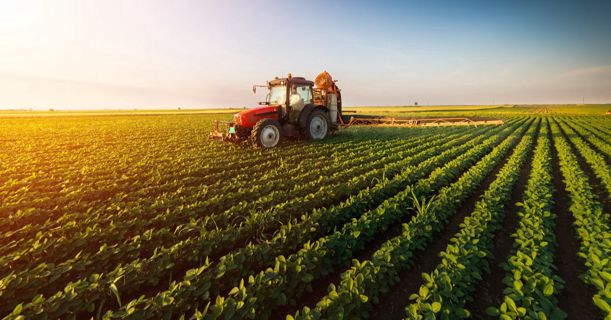
Agriculture, often called the backbone of human civilization, has played an immense role in shaping societies, economies, and ecosystems for millennia. It serves as more than just sustenance and income for billions across the globe; it plays a pivotal role in fostering economic expansion and promoting environmental sustainability. In recent times, as our world faces unprecedented challenges such as climate change, food security, and environmental degradation, the need to prioritize and revitalize agriculture has never been more crucial. This essay explores the compelling reasons why agriculture should be at the center of our focus, emphasizing its vital role in addressing global challenges and fostering sustainable development.
Food Security and Nutrition
One of the most compelling arguments for placing agriculture at the center of focus is its undeniable role in ensuring global food security and nutrition. As the global population continues to grow, estimates suggest that by 2050, we will need to produce 70% more food to meet the demands of nearly 10 billion people. Agriculture is the primary source of this food production. It offers not just the essential grains such as rice, wheat, and maize. But also an extensive assortment of fruits, vegetables, and animal products necessary for a well-rounded diet.
Furthermore, focusing on agriculture is crucial for addressing the issue of malnutrition and hunger that persists in many parts of the world. t involves not only increasing food production but also guaranteeing fair and equal distribution of it. Sustainable agriculture practices can enhance crop yields while preserving soil fertility and minimizing environmental degradation, making it possible to produce more food without compromising the well-being of future generations.
Economic Growth and Livelihoods
Agriculture is a major driver of economic growth, especially in developing countries where a significant portion of the population relies on agriculture for their livelihoods. Through a focus on agriculture, governments can catalyze economic growth, foster job creation, and reduction of poverty. Investments in modern agricultural technologies, infrastructure, and value chain development can enhance the productivity and profitability of farming, benefiting both smallholders and larger agribusinesses.
Furthermore, agriculture extends beyond the farm gate, contributing to downstream industries such as food processing, transportation, and retail. A thriving agricultural sector can increase income and prosperity for rural communities, reducing urban migration pressures and promoting balanced regional development.
Environmental Sustainability
In a time characterized by growing apprehensions regarding climate change and the deterioration of the environment, the acceptance of sustainable agricultural practices becomes imperative to address these challenges. Agriculture is inherently connected to the environment as it relies on natural resources like soil, water, and biodiversity. Unsustainable farming practices, such as deforestation, excessive pesticide use, and overgrazing, have led to soil erosion, water pollution, and a downturn in ecological diversity.
By making agriculture the center of focus, we have an opportunity to transition towards more sustainable practices. Sustainable agriculture methods, such as organic farming, agroforestry, and precision agriculture, emphasize resource conservation, reduced greenhouse gas emissions, and biodiversity conservation. Promoting these practices not only mitigates climate change but also ensures the long-term viability of agriculture itself.
Biodiversity Conservation
Agriculture plays a critical role in shaping landscapes and influencing biodiversity. Unfortunately, conventional farming practices have often been associated with habitat destruction and the decline of many plant and animal species. However, agriculture also has the potential to contribute positively to biodiversity conservation.
By implementing sustainable farming practices, such as preserving natural habitats on farmland, promoting crop diversity, and reducing chemical inputs, we can create agricultural landscapes that support a rich array of plant and animal species. This approach, known as agroecology, recognizes the interconnectedness of agriculture and ecosystems, and it seeks to harness this relationship for the benefit of both.
Conclusion
In conclusion, agriculture deserves to be at the center of focus in our efforts to address pressing global challenges and foster sustainable development. It is essential for food security, economic growth, and livelihoods, and it holds the key to mitigating climate change and preserving our planet's biodiversity. To realize the full potential of agriculture, we must prioritize sustainable practices, invest in research and innovation, and create policies that support the well-being of farmers and the environment. By doing so, we can ensure that agriculture continues to be a cornerstone of human progress and a force for positive change in the world.
0 件のコメント
この投稿にコメントしよう!
この投稿にはまだコメントがありません。
ぜひあなたの声を聞かせてください。
